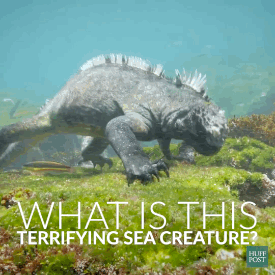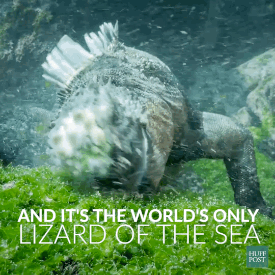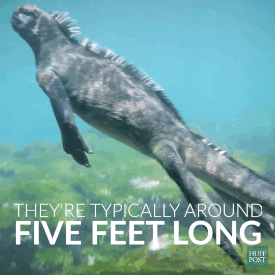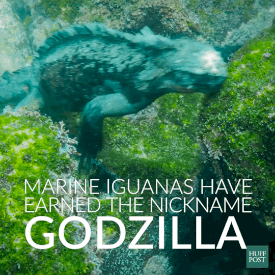How To Move A Story Forward
i've been writing a book and the feedback i've gotten from family members is that i have been using a lot of description, that the plot is moving along pretty slowly, and "something" needs to happen. do you have any tips or advice on moving plots along quicker in order to keep the reader's attention? thanks so much!!
How to Move a Story Forward
When your character is just milling about in their world describing what they see, what they’re doing, and what’s happening to them, that’s not really a plot. It’s just a random string of events happening to your character, and typically it doesn’t make for very interesting reading. This kind of story moves slowly because nothing’s actually happening. Imagine following an average person through their average day versus following Katniss Everdeen through day three of The Hunger Games. It’s a big difference. And that’s not to say every plot has to be as exciting or dramatic as The Hunger Games, but there does need to be a conflict.
So, the first thing you have to do is sit down and figure out what your story is really about. What is going on in this person’s life that is worth writing about? Is there some sort of inner conflict they’re struggling with? Or is there an external conflict of some kind? Usually there are both with the focus being more on one than the other.
How stories begin…
Most stories start when a character’s life is still normal but just about to change. Katniss was getting ready to go hunting with Gale. Bella was settling in at her new high school after moving in with her dad, and Harry Potter was just living life as the boy in the cupboard.
What happens next…
And then something happens. This is called the “inciting incident” because it “incites” the conflict and brings on the important events of the story. Katniss volunteers as tribute when her sister is drafted into The Hunger Games. Bella meets Edward Cullen and an instant attraction develops between them. Harry Potter receives his letter to Hogwarts.
The character responds and forms a goal…
The character’s normal life has been turned upside down. Now what? For Katniss, the most important thing in the world to her was the safety and well being of her sister and mother, and since she is the one who keeps them safe and fed, her survival of The Hunger Games is vital. That’s her motivation, and her goal is to win the game. Bella becomes obsessed with learning more about Edward and who, or what, he is, and she falls for him and the magic his world brings into her otherwise boring life. Being part of that world is her motivation, staying alive in the process is her goal. Harry finally has a ticket out of his life of being abused and unloved, and he has a chance to connect with the legacy his parents left behind. Leaving his old life behind and embracing this new one is is motivation. Surviving his first year at Hogwarts is his goal.
But goals aren’t supposed to be easy to reach…
If the character can just sail smoothly right up to their goal, mission accomplished, that makes for a pretty boring story. You never hear people say, “WOW! THAT WAS AN INCREDIBLE GAME!” when the score was 20 to nothing. What makes the game exciting is when the teams are neck and neck, one getting ahead for a little while, then the other one being ahead for a little while. It’s the trying, and often failing, to get over obstacles that makes the conflict more interesting. In a lot of ways, that struggle actually is the conflict. What obstacles stand in the way of your character and their goal, and who (or what) put them there? For Katinss, the obstacles were the other tributes and all the frightening things added to the game by the gamemakers. For Bella, it was the nomad vampires who caused trouble at first for fun, and then later for revenge. The obstacles Harry faces are partly due to conflict with other students and teachers, and partly due to the first “shots fired” in what would become the overarching battle against Voldemort.
You win some, you lose some…
And it’s important that you show some wins along with the failures. Sometimes the character tries to overcome an obstacle, fails, tries again and succeeds. Sometimes they fail and have to come up with a work around. Either way, the fails add to the tension and drama while the wins add excitement and interest in what happens next.
The final showdown…
Eventually you get to the big showdown, aka “the climax.” This is when your character faces down the biggest challenge that stands in the way of reaching their goal. This could be an epic battle between your character and the villain. It could be the moment where your character realizes they’re in love with their best friend and they chase them to the airport to admit their undying love for them before they move away. Or it could be surviving one last night of a terrible storm before crawling out of hiding to assess the damage. Whatever it is, the culmination of that moment is achieving or failing to achieve their goal.
The dust settles…
Whatever crazy chain of events was set off by the inciting incident, they’ve come to an end now thanks to the actions of your protagonist and their friends. Or, if they haven’t come to an end, they’ve at least been waylaid for now, or things are at least moving in a better direction. Now your characters can clean up, rebuild, mend wounds, tie up loose threads, and get back to life as normal. Or, in the case of a series, they can re-group and figure out what happens next. And that’s the end.
… But some stories happen on the inside.
Some stories are more about people and their experiences than about any big crazy thing that happens to them. Stories like these are more emotional and are more about dealing with the inner conflict than an outer one. But even in stories like these, you’ll still have a similar structure to what I laid out above. It’s just a lot looser and tied up with an emotional journey rather than the physical one. Which isn’t to say they can’t have a parallel physical journey, but the important stuff is happening on the inside.
Whichever kind of story you’re writing, if you make sure you’re hitting the important points I’ve laid out above, whether they relate to an internal conflict, an external conflict, or a little of both, you can be sure you’re writing a story that is moving forward and will keep your audience engaged. Everything I’ve outlined above is the “something” that needs to happen to make your story interesting.
Good luck! :)
More Posts from Gatortavern and Others
Cheetahs are wonderful animals.
I didn’t know cheetahs meow I’ve always thought they roar my whole life has been a lie
This is so rad! And the person that reblogs these also makes sure that every artist is credited so you can check them out! Props to both!

Two-headed Dragon with a Skull, ink on paper by Zhyreb
This artist on Instagram
Spectober 2020: Day 13
Get ready for Spectober Day 13!
Art Prompt: Graveyard
Writing Prompt: A graveyard seems like the perfect place to search for spirits, but will Stephen get more than he bargained for?
Don’t forget to tag your submissions with #spectober2020 ! Away you go!
What a wonderful Johnny! All the little touches on him are so magnificent!



Older Johnny
This is morbid, but it's also really cool. The Timeless Journey of the Mind (and the rest of the skull)™
Decapitated Stone Age woman's head rolled into a cave in Italy

Following her death about 5,600 years ago, a Stone Age woman’s skull took an unexpected journey when mud and water washed it away from her burial site and into the craggy rocks of a steep cave in what is now Italy, a new study finds.
When archaeologists found the skull, its resting spot in the cave shaft was so hard to reach that only one archaeologist, using rock climbing equipment, could squeeze into the space to recover it. During a later analysis, the researchers found that the skull was very scratched up; at first, they couldn’t make heads or tails of what had happened to the ancient woman.
But, after determining which of the skull’s lesions were likely caused by humans and which were likely incurred as the skull tumbled against various rocks, the researchers came up with a possible scenario. Once this woman died, people in her community likely dismembered her corpse — a funeral practice performed at other burials from this time period and region. Read more.
Kestrel-dad not sure how to dad but he’s trying his best.
this looks incredible. Look at this remarkable gator, just chillin'.

American Alligator - taken at one of the Disney hotels, during the zoo/exotic vet conference appropriately enough some years back
Are you Exploring your Concepts to their Fullest?
There’s nothing worse than getting hooked into a piece of media by a really cool concept—only to be let down through shallow exploration. The entire story I’m distracted from what’s happening by what could have been had they gone more in depth into what they promised.
The good news is, avoiding this in your own writing is fairly easy as long as you remember to continuously do one thing: ask questions.
I talk about this a lot, but making room to explore the implications (especially of worldbuilding and events, not just actions) is only going to deepen your narrative and create a more satisfying, well-rounded world. As well, the decisions you make here are going to set the use of your concept apart from the other stories we’ve seen it in.
If your concept is a character who has lived on a boat their entire life finally hits the shore, think about what it would mean for someone to have never seen land—how would they feel about trees, valleys, mountains, buildings. They would probably be very familiar with stars and constellations, navigation, the dark, swimming, fishing, and danger surrounding the water. They may prefer cramped spaces, sleeping under a low roof, a gentle rocking or white noise.
If there’s magic in the world but say only some people have it, how does that impact politics, healthcare, parenting? Do people have biases against magic users or non-magic users? Are there laws set to prevent or limit magic use in certain places, or at all?
You could ask endless amounts of questions about a concept, and you should. If you introduce something big, exciting, and full of consequences—you must also be willing to commit to it, and explore it to its fullest.
Good luck! If you feel like sharing, tag a concept you’ve come up with and some interesting implications that go with it!
-
 myoraleveau liked this · 2 weeks ago
myoraleveau liked this · 2 weeks ago -
 newdawnhorizon reblogged this · 2 weeks ago
newdawnhorizon reblogged this · 2 weeks ago -
 newdawnhorizon reblogged this · 1 month ago
newdawnhorizon reblogged this · 1 month ago -
 ilightmytorch reblogged this · 2 months ago
ilightmytorch reblogged this · 2 months ago -
 sovvannight liked this · 2 months ago
sovvannight liked this · 2 months ago -
 quartz26x liked this · 3 months ago
quartz26x liked this · 3 months ago -
 mpp987 liked this · 5 months ago
mpp987 liked this · 5 months ago -
 laluxic liked this · 5 months ago
laluxic liked this · 5 months ago -
 hauntedshrimp liked this · 9 months ago
hauntedshrimp liked this · 9 months ago -
 junosresources reblogged this · 9 months ago
junosresources reblogged this · 9 months ago -
 judasisdrafting liked this · 9 months ago
judasisdrafting liked this · 9 months ago -
 dreamondelphinus reblogged this · 9 months ago
dreamondelphinus reblogged this · 9 months ago -
 dreamondelphinus liked this · 9 months ago
dreamondelphinus liked this · 9 months ago -
 rirori-jeorgiarn reblogged this · 10 months ago
rirori-jeorgiarn reblogged this · 10 months ago -
 iforgort liked this · 10 months ago
iforgort liked this · 10 months ago -
 heckcareoxytwit liked this · 10 months ago
heckcareoxytwit liked this · 10 months ago -
 randomlettrrsqqssfxwcvhxnqbwriro liked this · 10 months ago
randomlettrrsqqssfxwcvhxnqbwriro liked this · 10 months ago -
 chocomintses liked this · 10 months ago
chocomintses liked this · 10 months ago -
 marchingbandtshirt liked this · 11 months ago
marchingbandtshirt liked this · 11 months ago -
 dellamortez liked this · 11 months ago
dellamortez liked this · 11 months ago -
 shippingcentral liked this · 11 months ago
shippingcentral liked this · 11 months ago -
 boomiburst reblogged this · 11 months ago
boomiburst reblogged this · 11 months ago -
 heckcareoxytwit reblogged this · 1 year ago
heckcareoxytwit reblogged this · 1 year ago -
 crazycreative425 liked this · 1 year ago
crazycreative425 liked this · 1 year ago -
 allthingswriting reblogged this · 1 year ago
allthingswriting reblogged this · 1 year ago -
 stardustandscreenwriting reblogged this · 1 year ago
stardustandscreenwriting reblogged this · 1 year ago -
 wordfather liked this · 1 year ago
wordfather liked this · 1 year ago -
 cyberzombie33 liked this · 1 year ago
cyberzombie33 liked this · 1 year ago -
 shabootldoo liked this · 1 year ago
shabootldoo liked this · 1 year ago -
 princessleone liked this · 1 year ago
princessleone liked this · 1 year ago -
 digital-dragoon liked this · 1 year ago
digital-dragoon liked this · 1 year ago -
 jonnyardor reblogged this · 1 year ago
jonnyardor reblogged this · 1 year ago -
 jonnyardor liked this · 1 year ago
jonnyardor liked this · 1 year ago -
 the-ladys-beloved-sunflower liked this · 1 year ago
the-ladys-beloved-sunflower liked this · 1 year ago -
 importantlightbatdeputy liked this · 1 year ago
importantlightbatdeputy liked this · 1 year ago -
 moosethren reblogged this · 1 year ago
moosethren reblogged this · 1 year ago -
 soleilsplanet reblogged this · 1 year ago
soleilsplanet reblogged this · 1 year ago -
 holly-gollyi liked this · 1 year ago
holly-gollyi liked this · 1 year ago -
 introvertweirdqueen liked this · 1 year ago
introvertweirdqueen liked this · 1 year ago -
 theothermaidoftarth liked this · 1 year ago
theothermaidoftarth liked this · 1 year ago -
 theothermaidoftarth reblogged this · 1 year ago
theothermaidoftarth reblogged this · 1 year ago -
 ephemeral-lucida liked this · 1 year ago
ephemeral-lucida liked this · 1 year ago -
 dragonpaintings reblogged this · 1 year ago
dragonpaintings reblogged this · 1 year ago -
 dragonpaintings liked this · 1 year ago
dragonpaintings liked this · 1 year ago -
 seajaneradio liked this · 1 year ago
seajaneradio liked this · 1 year ago -
 annesfaulkner liked this · 1 year ago
annesfaulkner liked this · 1 year ago -
 xuliaxuxu reblogged this · 1 year ago
xuliaxuxu reblogged this · 1 year ago -
 alunaloverworld reblogged this · 1 year ago
alunaloverworld reblogged this · 1 year ago

A Cozy Cabana for Crocodiles, Alligators and their ancestors. -fan of the webcomic Paranatural, Pokemon, Hideo Kojima titles -updates/posts infrequently
237 posts







